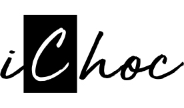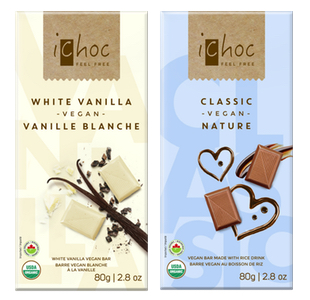TRACES OF MILK?
A statement on the product recall in Canada.
26. May 2020
In this statement we refer to a complaint by the Canadian authorities. The Canada Food Inspection Agency (CFIA) has recently issued a warning that two of our iChoc varieties (“White Vanilla”: 12.2020, L29405 a | “Classic”: 11.2020 | L19184) contain milk components and wants us to call back all goods.
A clarification:
None of our products does contain milk as part of its recipe. Nevertheless possible traces can not be excluded, because the chocolates are produced in a factory, where milk chocolates are manufactured as well.
We sell iChoc successfully in Canada since 2017, always with a correct declaration (“contains traces of milk”) on the packaging. What is new to us is that the Canadian authorities now define a casein content limit of only 10 ppm (0,001 g / 100 g) for vegan products, which we never heard of before. This is the same as the limit for lactose-free products. Thus they de facto equate “vegan” and “lactose-/casein-free”. However, this in no way corresponds to the European legal situation and practice, which accepts possible milk components during the production of vegan products in larger manufacturing plants. Prestigious associations, like the independent Vegan Society, tolerate a limit value of casein up to 1000 ppm (0,1 g / 100 g). A claim for milk allergic persons with the terms “free from”, “lactose-free” or “milk-free” is explicitly regulated for good reason and should not be confused with the term “vegan”, which describes an animal-free recipe, but not a suitability for people with allergies. The Vegan Society has published a comprehensive assessment about this topic: https://www.vegansociety.com/resources/nutrition-and-health/allergen-labelling
The measured values of our iChoc chocolates are generally within the permitted and tolerated range and vary between detectable casein contents of 50 – 800 ppm (0,005 – 0,08 g / 100 g). For example, a counter-analysis of the complained batch of iChoc “Classic” chocolate showed a casein value of 160 ppm (0,016 g / 100 g).
How we deal with possible traces:
As mentioned above, we produce in a chocolate factory, where milk chocolates get manufactured as well. Before we started with the production of vegan chocolates, our factory invested in high-tech cleaning systems, which try to increase an utmost clarity of traces. Furthermore, the machines are flushed with a vegan mass between the production of milk chocolates and vegan chocolates to clean the pipelines a second time. That gives us a double safety. Anyway, despite of all preventional procedures, we can not ensure 100 % that no components of milk powder remain somewhere in the pipelines. That’s why we give the allergy advise on the packaging (which in Germany is a voluntary declaration). On each product page on our website, we additionally give a safety advice that people, who suffer from dairy allergies, should better avoid the consumption of our chocolates.
Chocolate factories, who produce 100 % vegan (without any problems of “cross contamination”), are hardly to find worldwide. In most cases these are smallest manufactories. For the most producers a complete vegan production is still too uneconomic. So, we are very happy that we have found a production partner, who said yes to “vegan” and gave our idea a chance. Thus we had to accept the traces issue.
What are we going to do now?
We will have a legal examination of whether the approach of the Canadian authorities is correct. Nevertheless we will also check which additional measures can be established in the future to further minimize the entry of possible traces.

